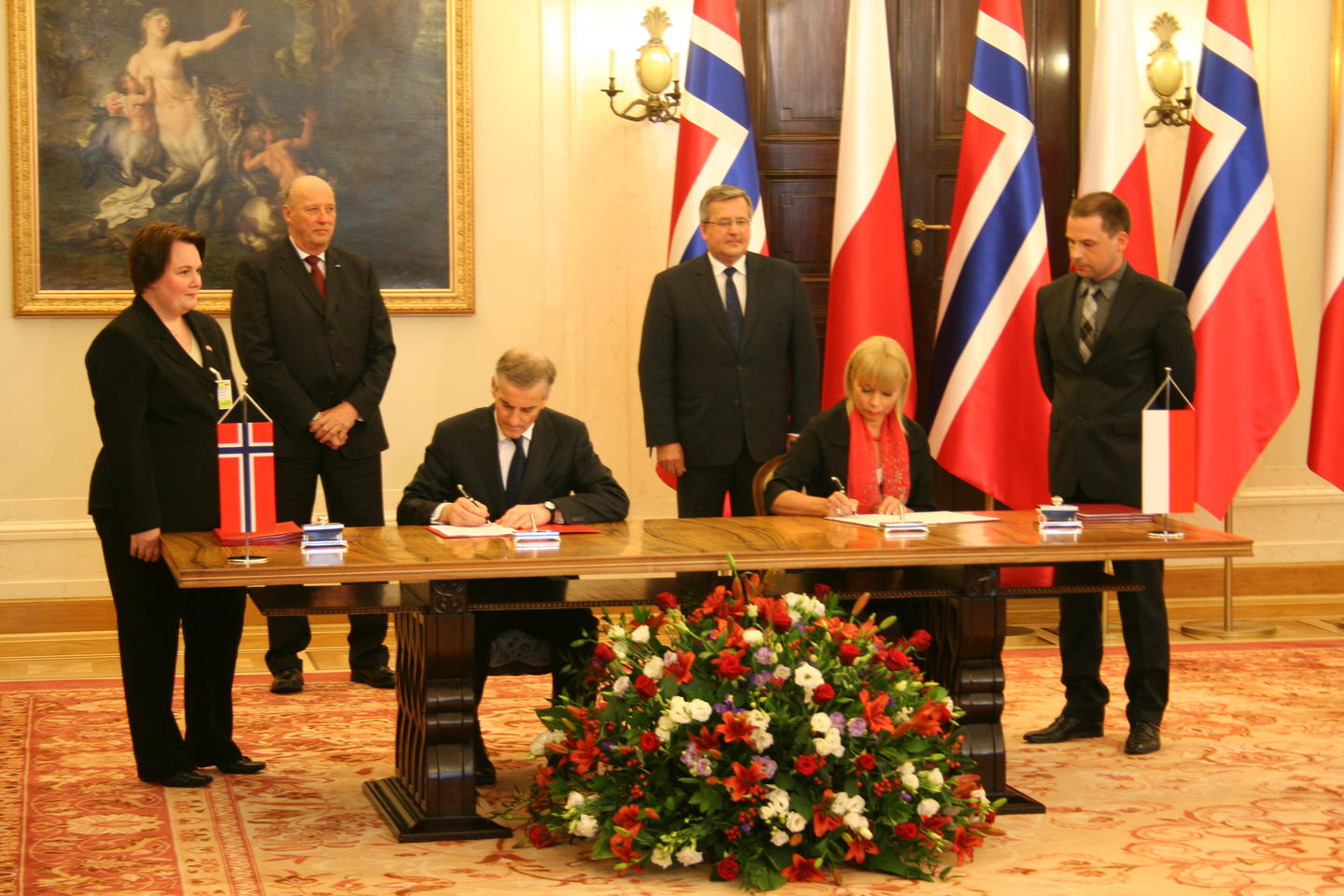“Relations between Norway and Poland continue to grow in both breadth and depth. Our cooperation with Poland has developed more rapidly over the last few years than that with almost any other European country,” commented Norwegian Foreign Minister Jonas Gahr Støre.
Mr Støre is taking part in the state visit to Poland, which started on Wednesday in Warsaw with the signing of three new cooperation programmes on research, education grants and culture.
This is part of Norway’s contribution to Poland through the EEA and Norway Grants. Some €578 million have been allocated to various sectors for the period up to 2016. This makes Poland the largest recipient of grants under the scheme, where Iceland and Liechtenstein are also contributors to the EEA Grants.
Around €37 million will be used for cooperation projects between Norwegian and Polish researchers. Priority research areas include the environment, health and gender equality. At the same time €10 million will be used to support exchanges of students and scientific staff , and €10 million to exchange and cooperation between artists and cultural institutions in Poland and Norway. People and entities from Iceland and Liechtenstein may also participate in educational and cultural exchanges and projects.
“Cooperation between beneficiary and donor countries is a key aspect of the EEA and Norway Grants. This is fostering lasting ties and helping to bind Norway and Poland closer together,” said Mr Støre.
Several other topics are on the programme for the three-day state visit. Seminars will be held on defence cooperation, tourism, green growth and modern working life, with emphasis on cooperation between the social partners and the authorities.
Photo: Norwegian Ministry of Foreign Affairs
